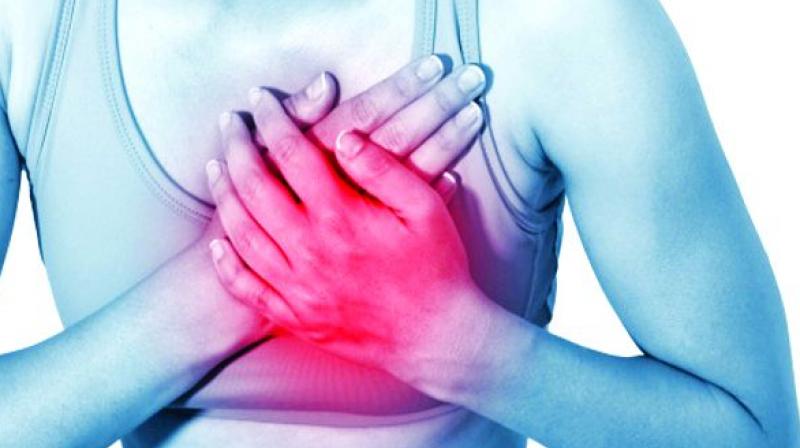Limited research on women's heart health
Cardiologists have decided to study women's health issues as a separate category and document the findings.

Hyderabad: Cardiovascular diseases among Indian women are caused primarily due to low good cholesterol, high body mass index (BMI), high blood pressure, diabetes, sedentary lifestyle, stressful work conditions and a compromised diet, according to five papers published in the Indian Journal of Cardiovascular diseases in women. Research on the health of women’s heart is very limited, and for that reason cardiologists have decided to study women’s health issues as a separate category and document the findings.
Cardiologists say they require a good theoretical base to understand the multiple causes for heart problems in women as they are distinctly different from men.
Dr Shiv Kumar, senior cardiologist, says, “Research data on women’s heart health is limited as the common belief is that the disease does not strike them because they go through a regular menstrual cycle. Contrary to this, we have been coming across case of women in their mid-20s, 30s and 40s suffering from heart problems. This shows that the causes need to be evaluated all over again, and worked upon.”
For this reason, the study was carried out on 1.6 lakh urban Indians, of which 32 per cent were women with a majority (92 per cent) of them being under 60 years of age. Their cases have been followed up at clinical level and initial the assessment of the causes have been tabulated. Dr Sumeet Sinha, senior consultant interventional cardiologist, says, “In Truncal obesity, the abdominal diameter to the skin fold ratio serves as a good indicator in predicting premature cardiovascular diseases, both in men and women. In young women, we also found anaemia playing a role in developing heart problems, and further studies are required to understand this better.”
The clinical characteristics of cardiovascular diseases among women differ from that of men because of the role of estrogens and androgens. These sex chromosomes have endothelial function and vascular tones, due to which the diagnosis becomes a challenge. While men develop hypertension at a younger age than women, they carry an increased life-long burden of the disease, including the risk of a stroke. Dr Sinha says, “In women suffering from polycystic ovarian syndrome, there is higher probability of developing Type 2 diabetes as also secondary diseases like cardiovascular diseases which are associated to diabetes.”

